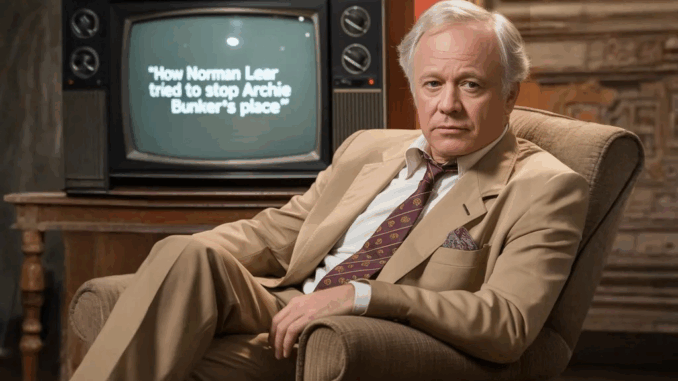
Discover how Norman Lear, the creator of All in the Family, tried to prevent the short-lived spin-off Archie Bunker’s Place and why his efforts highlighted creative differences behind one of TV’s most iconic shows.
When All in the Family ended its groundbreaking run in 1979, audiences were not quite ready to say goodbye to Archie Bunker. CBS kept the story alive with a spin-off called Archie Bunker’s Place, a continuation that focused on Archie running a bar after Edith’s exit. However, what many fans may not know is that Norman Lear—the legendary creator behind All in the Family—was not in favor of the new series and even tried to prevent it from moving forward.
Lear, known for his progressive storytelling and fearless approach to tackling social issues, had always envisioned All in the Family as a product of its time. To him, the series had said everything it needed to say by the end of its run. He worried that stretching Archie’s story further would dilute the legacy of the original show. Despite his reservations, CBS and Carroll O’Connor, who played Archie, moved ahead with the spin-off, seeing continued potential in the character.
While Archie Bunker’s Place enjoyed some success, lasting four seasons, it never captured the same cultural impact or critical acclaim as All in the Family. Lear’s instincts proved right to some extent—the spin-off felt more like a traditional sitcom than the bold, socially conscious storytelling that defined the original.
Still, the existence of Archie Bunker’s Place speaks volumes about Archie’s lasting influence. Even without Lear’s full support, audiences were drawn to Archie’s flawed but fascinating character, proving that some TV icons are too powerful to fade quickly.
Norman Lear’s attempt to stop the spin-off reminds us of the delicate balance between creative vision and network demands. It also underscores how All in the Family remains unmatched in its impact on television, while Archie Bunker’s Place exists as a fascinating footnote in TV history—one that Lear himself wished had never been written.